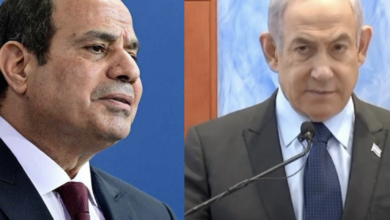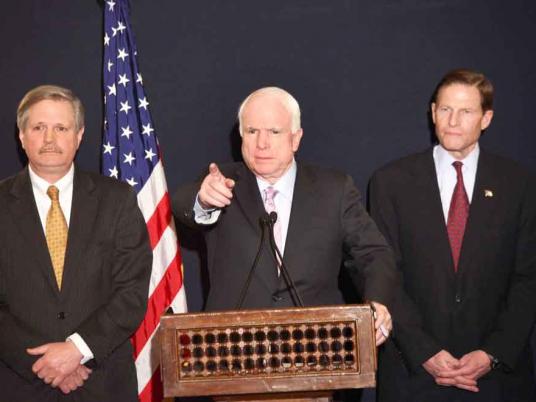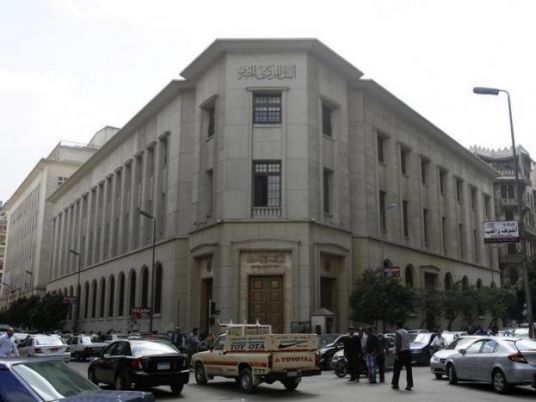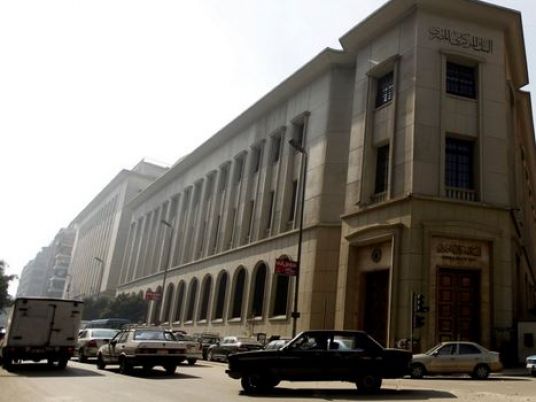“To pick my name… I was told my father opened a random page in the holy Koran and moved his finger along the verses with his eyes closed. As he opened his eyes, his forefinger was on the verse saying: ‘Thou see the mountains and believe they’re solid, yet they move like the clouds; God’s creation, all is done with perfection,’ so he decided to name me Sonallah,” which means God's creation in Arabic.
Sonallah Ibrahim has been often described as “the writer against the establishment.” And despite the state’s many attempts to silence him through detainment and torture, he remained a symbol of the independent intellectual. He was detained in 1959, when the Nasserist regime was conducting mass arrests of leftists and communists, and he reflected on these experiences in his first novel “Tilka al-Ra’iha” (The Smell of It) in 1966. In 22 October 2003, the Supreme Council of Culture attempted to honor him during the second International Conference on the Arab Novel with an award of LE100,000, but he refused to accept the prize.
In the warm setting of his living room, the 74-year old writer sat with Al-Masry Al-Youm for an interview, where he reflected on the ongoing revolution and the recent tension with Israel.
Al-Masry Al-Youm: What do you think of Islamists’ claim that Communist and Islamic values are contradictory and can never meet?
Sonallah Ibrahim: I prefer to speak of socialism rather than communism. People often use the words interchangeably without knowing the difference. Didn’t Prophet Mohammed call for equality and social justice? Are these not the same principles of socialism? So, where is the alleged contradiction? Those who cite inconsistencies have no real understanding of socialist values. They also interpret holy texts literally and call for rigidity. I believe that there are no contradictions in values.
Al-Masry: You previously said that your 1981 novel “Al-Lajna” (The Committee) critiques how intellectuals were used by the state. Do you think that such intellectuals should be tried?
Ibrahim: The faults of intellectuals cannot be compared to those of politicians of the Mubarak regime. A corrupt intellectual might have accepted a state prize that he did not deserve or sought a position others might be more worthy of; some might have even been pressured to do so. I’m not trying to speak in their defense, but I think we should focus on the big picture. The ongoing trial is a fiasco. Mubarak, his sons and entourage destroyed our nation and should be charged with high treason. And proof for his treason is the grief that Israel expressed with the fall of its strategic ally. All of his men should be tried as well. How dare Ahmed Shafik and Omar Suleiman express their intention to run for presidency; that’s a joke. How come those who betrayed the nation nominate themselves to rule over the people?
Al-Masry: You previously rejected state awards. If you are offered such awards now, would you accept them?
Ibrahim: The desired reforms have not been implemented yet for me to accept a state award.
Al-Masry: In your 2003 novel “Amrikanli,” you spoke of American imperialism and noted that nations will eventually gain their freedom. Do you see the Arab uprisings fulfilling that dream?
Ibrahim: The pillars of American imperialism will inevitably collapse. But so far, people have only succeeded in overthrowing the face of despotic regimes, and then they lose direction. I’m afraid that the Arab spring is no more than [a series of] popular uprisings. I still hope to see the revolution being fulfilled.
Al-Masry: You were against state policies under Nasser, Sadat and Mubarak; why is that?
Ibrahim: This question is inaccurate. Despite my long detainment under Nasser’s regime, I was never against his policies. Nasser did everything at once; he expelled the British, nationalized the Suez Canal and built the High Dam. What I was opposed to was his police system, and his refusal to share power with anyone. Nasser’s accomplishments cannot be denied. He protected the dignity of Arabs and we are all proud of him. As for his successors, I can only describe them as traitors. The former president [Anwar Sadat] should have been charged with high treason for signing the unfair Camp David Accords, which has prevented us until now from protecting our borders and avenging the blood of our children. As for the Pharoah (Mubarak), he has ruled undeterred for three decades until he ruined our history and culture, as demonstrated by our complete submission to the West.
Al-Masry: So how do you see the fate of the Camp David Accords after the killing of our soldiers on the border?
Ibrahim: It is time to at least modify it to allow the spread of our armed forces on the border until we are ready to cancel it. Is there not a clause in the accords stipulating that each party should undertake necessary measures to ensure no acts of war, aggression or violence are undertaken against the other from within its borders or by forces under its control? How is the accords reflected in what happened? I’m bewildered by the US statements about Egypt being incapable of protecting the border, because the treaty prevents the deployment of our military on the border.
Al-Masry: Do you think that Israel’s apology for the killings is enough?
Ibrahim: Of course not. We need to take deterrent measures, I don't mean war. Some measures can have a stronger impact like the stoppage of gas exports.
Al-Masry: What has the 25 January revolution accomplished so far in your opinion?
Ibrahim: It fulfilled a collective dream that no one dared to shout out loud except for those young revolutionaries, who succeeded in destroying the temple and overthrowing its priests. Yet much more remains so that history does not name it an uprising. A promising and conscientious class should replace the ousted ruling regime, and reform policies have not been developed and institutionalized yet.
Al-Masry: Who do you think will rule Egypt?
Ibrahim: Only the ballot boxes will tell. Those who seek power, however, should pursue it without fraud, coercion, or manipulation of the masses like what happened with the constitutional referendum. Everyone knows that the constitution should be drafted first, yet the majority said yes, and most of them were unaware of the implications of the “Yes” vote. It’s about time that intellectuals spread awareness among the masses and spearhead Egypt’s transition to a fair and democratic country. The political scene is currently replete with slogans, which inevitably differ in essence, but this isn’t clear now, and there are those who are waiting to declare their position when things become a bit clearer. So, I repeat, intellectuals should focus on the average citizen.
Al-Masry: How do you see the future of the Arab world in light of the ongoing revolutions?
Ibrahim: The Arab World is on fire from the repression its people have experienced for decades. But now people are getting rid of the tyrants. For the Arab World to recover, we need another Nasser or similar leaders of similar vision and stamina.
Al-Masry: What is your one wish that hasn’t been fulfilled?
Ibrahim: I wanted to see Mubarak on trial for high treason, but that wish seems impossible now.
Translated from the Arabic Edition




